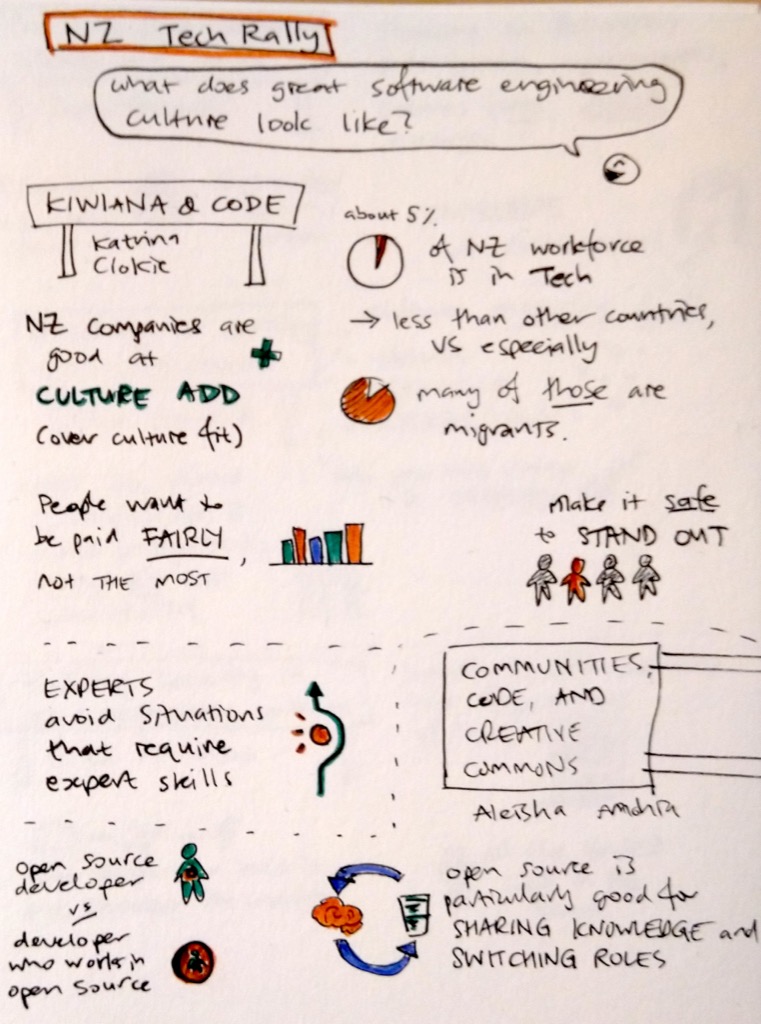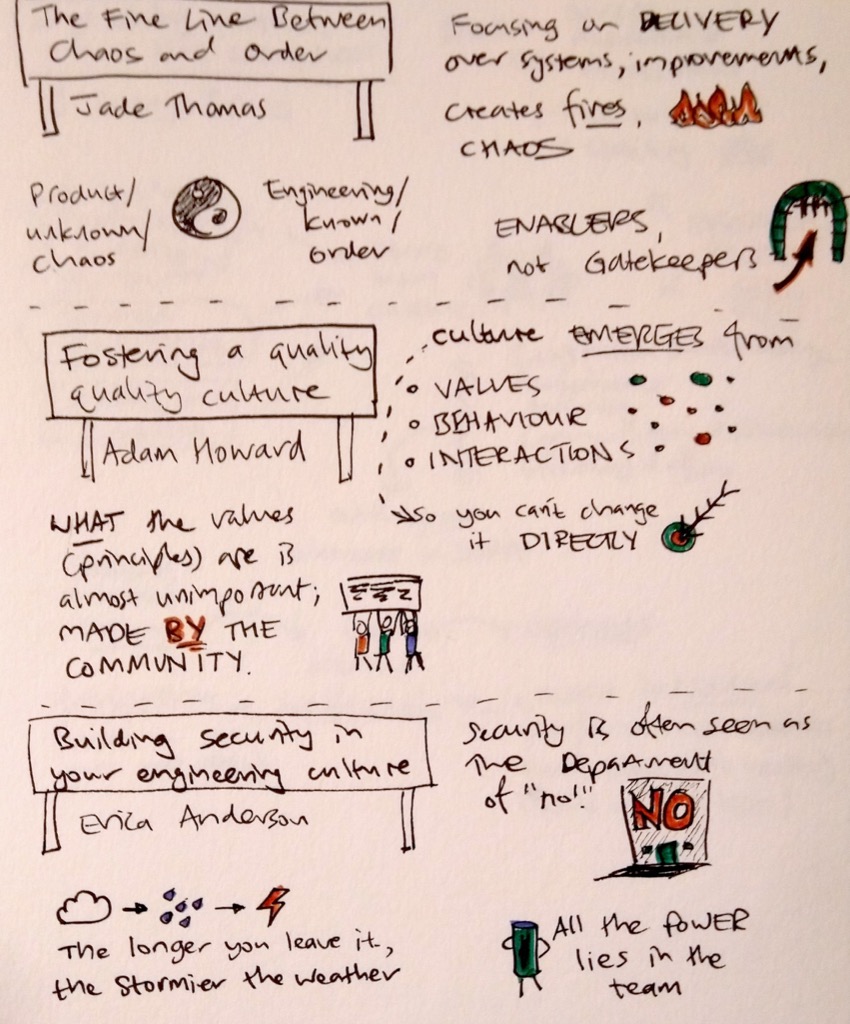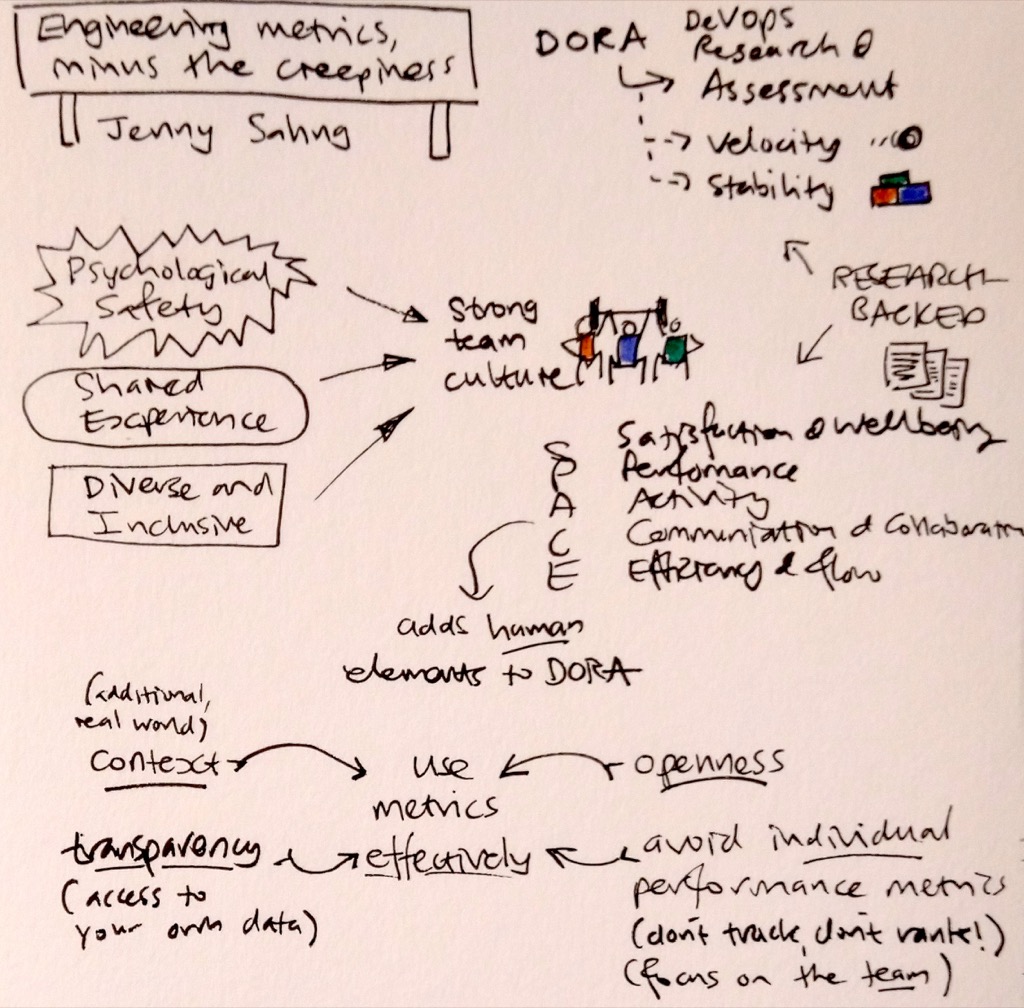The other day I was at the excellent NZ Tech Rally. The conference theme was “What does great software engineering culture look like, and how have Kiwis done it?”.
Below are my sketchnotes for some of the talks. My top three takeaways:
- Experts avoid situations that require expert skills.
- Focusing on delivery over systems and improvements creates fires, chaos.
- The longer you leave it, the stormier the weather.
Something I’m going to research: SPACE metrics.
NZ Tech Rally sketchnotes, page 1
Text version of sketchnotes for "NZ Tech Rally 2023, page 1"
- Kiwiana and code
- About 5% of the NZ workforce is in tech. This is less than other countries, especially the US. Many tech workers are migrants.
- NZ companies are good at culture add (over culture fit).
- People want to be paid fairly, not paid the most.
- Make it safe to stand out.
- Experts avoid situations that require expert skills.
- Communities, Code, and Creative Commons
- Identity-first: open source developer vs developer who works in open source.
- Open Source is particularly good for sharing knowledge and switching roles.
NZ Tech Rally sketchnotes, page 2
Text version of sketchnotes for "NZ Tech Rally 2023, page 2"
- The fine line between chaos and order
- Focusing on delivery over systems and improvements creates fires, chaos.
- The yin yang of tech: Product / Unknown / Chaos and Engineering / Known / Order.
- Enablers, not gatekeepers.
- Fostering a quality quality culture
- Culture emerges from Values, Behaviours, Interactions. You can’t change culture directly.
- What the values / principles are is almost unimportant: they’re made by the community.
- Building security in your engineering culture
- Security is often seen as The Department of No.
- The longer you leave it, the stormier the weather.
- All the power lies in the team.
NZ Tech Rally sketchnotes, page 3
Text version of sketchnotes for "NZ Tech Rally 2023, page 3"
- Two research-backed sets of metrics:
- DORA: DevOps, Research and Assessment. Measures Velocity and Stability.
- SPACE: Satisfaction and Wellbeing, Performance, Activity, Communication and Collaboration, Efficiency and Flow. Adds human elements to DORA.
- Psychological Safety, Share Experience, Diverse and Inclusive: builds a strong team culture.
- Use metrics effectively:
- (additional, real world) context
- transparency (access to your own data)
- openness
- avoid individual performance metrics (don’t rank, don’t even track!) (focus on the team)


